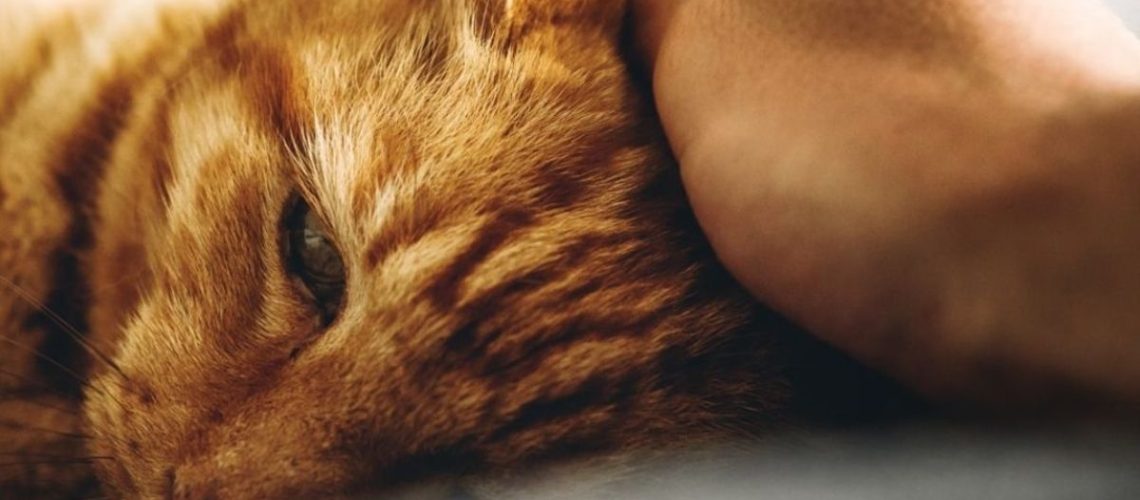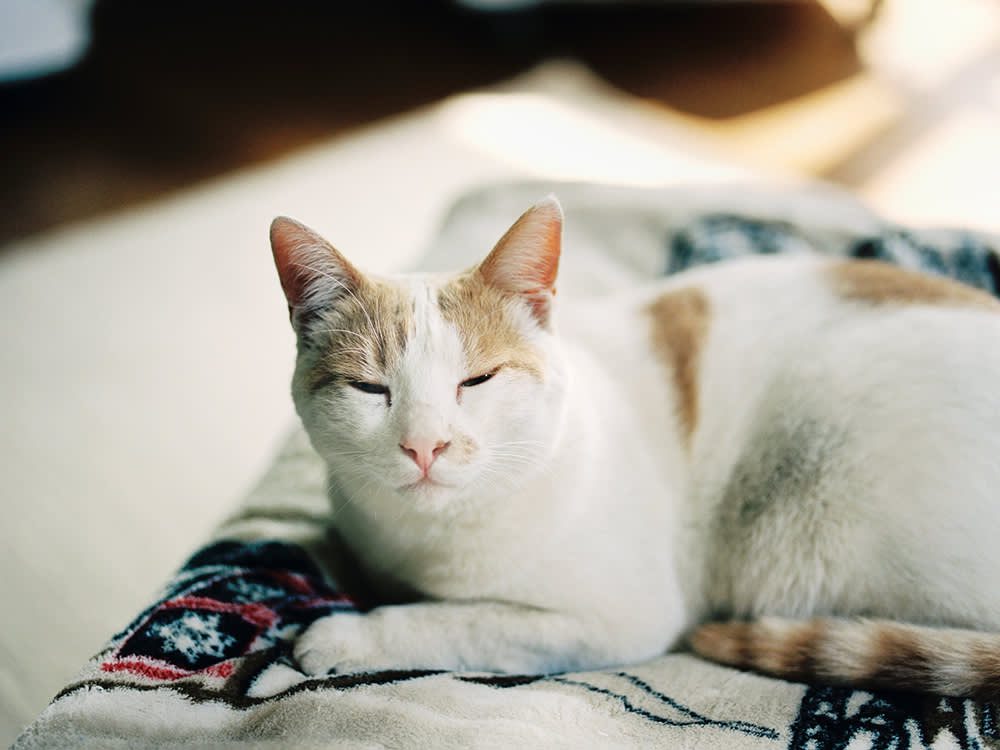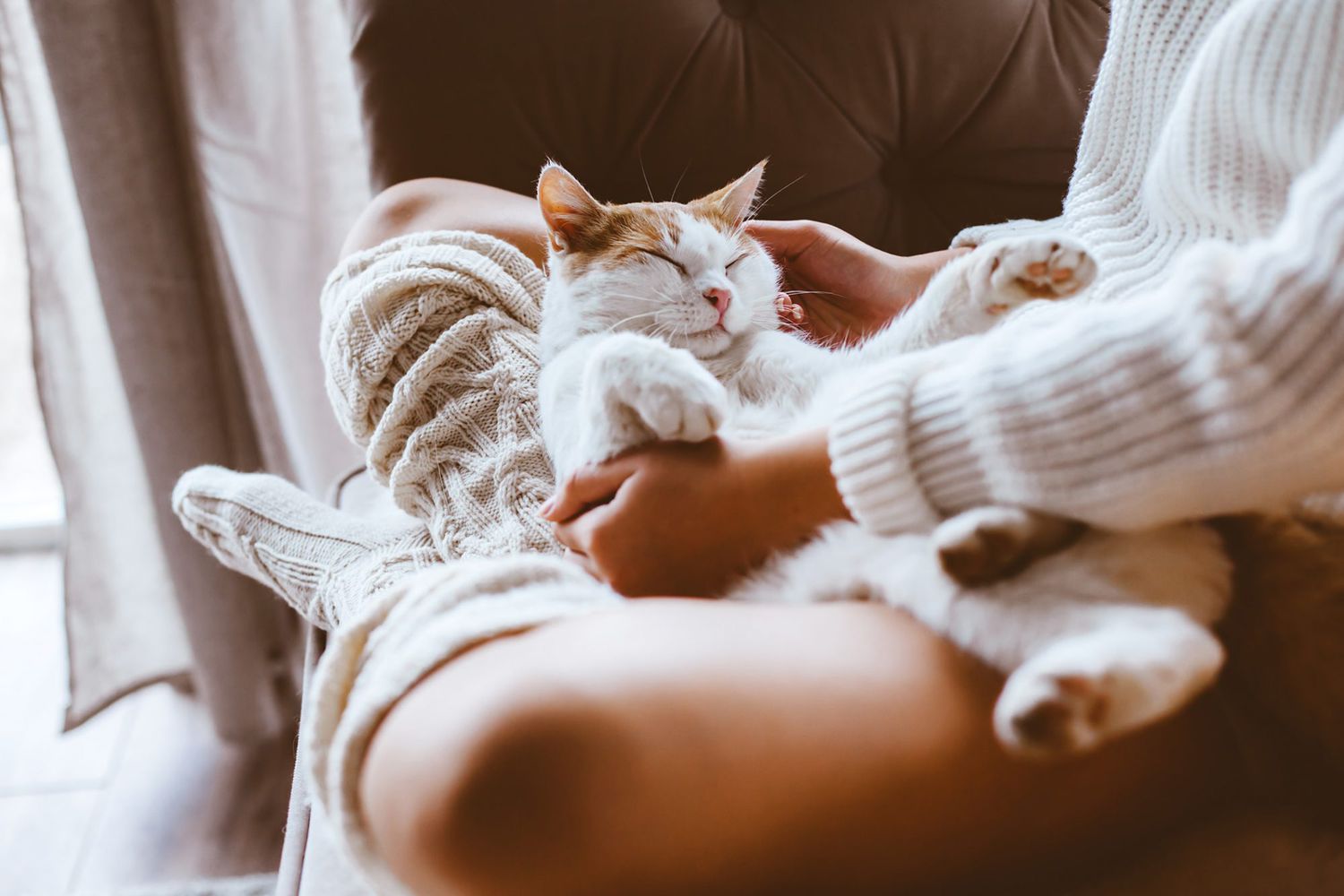Are you curious about how to help your furry feline friend when they're feeling stressed? Well, stress busters for cats might just be the answer you've been looking for! Understanding and helping stressed cats can not only improve their overall well-being but also strengthen the bond between you and your pet. By uncovering the secrets behind feline stress and learning effective techniques to alleviate it, you'll be equipped with the knowledge to create a peaceful and harmonious environment for your beloved cat. So, let's dive into this fascinating world of understanding and helping stressed cats together!
Key Takeaways:
- Stress in cats can manifest in various ways, including excessive grooming, hiding, aggression, or changes in appetite.
- Identifying the source of stress is crucial in helping a stressed cat. It could be due to environmental factors, health issues, or changes in routine.
- Creating a calm and safe environment for the cat by providing hiding spots, vertical spaces, and interactive toys can help alleviate stress.
- Establishing a routine and maintaining consistency in feeding times, playtime, and social interactions can help reduce stress levels in cats.
- In severe cases of stress, consulting with a veterinarian or animal behaviorist may be necessary to develop a tailored treatment plan for the cat's well-being.
Understanding "Stress Busters: Helping Cats Deal with Stress"
Why Do Cats Get Stressed? Explained in Simple Terms
Cats, just like humans, can experience stress. Stress in cats can be caused by various factors such as changes in their environment, a lack of routine, or even conflicts with other animals. When a cat feels stressed, it can affect their behavior and overall well-being.
One common reason for cat stress is changes in their surroundings. Moving to a new home or having new people or pets enter their territory can make them feel anxious. Additionally, loud noises, such as fireworks or thunderstorms, can also trigger stress in cats.
How to Tell If Your Cat Is Stressed: Easy Signs to Look for
It's important to be able to recognize the signs of stress in your cat so you can take appropriate action. Some easy signs to look for include:
- Changes in appetite: A stressed cat may eat less or more than usual.
- Increased hiding: If your cat starts hiding more often and avoids social interaction, it could be a sign of stress.
- Excessive grooming: Cats may groom themselves excessively when they are stressed.
- Aggression or avoidance: A stressed cat may become aggressive towards people or other animals, or they may avoid contact altogether.
Common Signs of Stress in Cats: What to Watch Out For
In addition to the easy signs mentioned earlier, there are some other common signs of stress that you should watch out for:
- Litter box issues: A stressed cat may start urinating outside of the litter box or have diarrhea.
- Changes in sleep patterns: If your cat is having trouble sleeping or is sleeping more than usual, it could be a sign of stress.
- Excessive vocalization: Some cats may meow excessively when they are stressed.
- Loss of appetite: A stressed cat may lose interest in food and have a decreased appetite.
Situations That Can Cause Stress in Cats: Things You Should Know
Cats can experience stress in various situations. Some common situations that can cause stress in cats include:
- Moving to a new home: Cats are creatures of habit, so moving to a new environment can be stressful for them.
- New additions to the family: The arrival of a new baby or another pet can disrupt a cat's routine and cause stress.
- Loud noises: Cats have sensitive hearing, so loud noises like fireworks or construction sounds can be overwhelming for them.
- Veterinary visits: Many cats find vet visits stressful due to unfamiliar smells and handling by strangers.
The Impact of Stress on a Cat's Health: Important Facts Revealed
Stress can have negative effects on a cat's health. Prolonged stress can weaken their immune system, making them more susceptible to illnesses. It can also lead to digestive issues, skin problems, and even behavioral changes. Additionally, chronic stress in cats has been linked to conditions such as feline lower urinary tract disease (FLUTD) and obesity.
Tips for Relaxing a Stressed Cat: Practical Ways to Help Them Feel Better
If you notice that your cat is stressed, there are several things you can do to help them relax:
- Create a safe space: Set up a quiet area in your home where your cat can retreat to when they need some alone time.
- Maintain a routine: Cats thrive on routine, so try to stick to a consistent schedule for feeding, playtime, and other activities.
- Provide environmental enrichment: Offer toys, scratching posts, and interactive play to keep your cat mentally stimulated and reduce stress.
- Use pheromone products: Feliway diffusers or sprays release calming pheromones that can help reduce anxiety in cats.
Natural Remedies and Techniques for Reducing a Cat's Stress Levels
In addition to the tips mentioned earlier, there are natural remedies and techniques that can help reduce a cat's stress levels:
- Aromatherapy: Certain essential oils like lavender or chamomile can have calming effects on cats. However, it's important to consult with a veterinarian before using any essential oils on your cat.
- Massage therapy: Gently massaging your cat can help promote relaxation and reduce muscle tension.
- Music therapy: Playing soothing music specifically designed for cats can create a calming environment for them.
The Importance of Creating a Calm Environment for Your Stressed Cat: Simple Ways to Achieve It
Creating a calm environment is crucial for helping your stressed cat feel better. Here are some simple ways you can achieve this:
- Provide hiding spots: Place cozy beds or boxes in different areas of your home where your cat can retreat when they need some quiet time.
- Minimize exposure to stressors: If you know certain situations or noises stress out your cat, try to minimize their exposure to them as much as possible.
- Use calming colors: Opt for soothing colors like blues and greens when choosing bedding or furniture for your cat's area.
- Create vertical spaces: Cats feel safe when they have high perches to climb on, so consider adding cat trees or shelves for them to explore.
Why Do Cats Get Stressed? Explained in Simple Terms
Stress is not just a human experience; cats can also feel stressed. Understanding why cats get stressed is important for their well-being. One common reason is changes in their environment. Cats are creatures of habit and any sudden changes, such as moving to a new home or rearranging furniture, can cause stress. Another factor is social interactions. Cats are territorial animals and may become stressed when they encounter unfamiliar cats or people. Additionally, medical issues can also contribute to stress in cats. Pain or discomfort from illnesses can make them anxious and irritable.
The Role of Hormones
Hormones play a significant role in a cat's stress response. When a cat feels threatened or stressed, the body releases stress hormones like cortisol and adrenaline. These hormones prepare the cat for fight-or-flight responses, increasing heart rate and blood pressure.
Effects on Behavior
Stress can manifest in various ways in cats' behavior. Some common signs include excessive grooming, aggression towards other pets or humans, hiding, loss of appetite, or changes in litter box habits.
How to Tell If Your Cat Is Stressed: Easy Signs to Look for
Recognizing signs of stress in your cat is crucial for early intervention and providing appropriate care. While each cat may display different symptoms, there are some easy signs you can look out for:
Changes in Eating Habits
A stressed cat may eat significantly less or more than usual. They might lose interest in food altogether or start binge eating.
Altered Sleeping Patterns
If your normally active cat suddenly becomes lethargic or sleeps excessively, it could be a sign of stress.
Increased Aggression
Stress can cause cats to become more aggressive towards other animals or even humans. They may hiss, scratch, or bite more frequently.
Withdrawal and Hiding
Stressed cats often seek solitude and may hide in unusual places like under the bed or in closets.
Common Signs of Stress in Cats: What to Watch Out For
Cats have unique ways of expressing their stress. Here are some common signs to watch out for:
Excessive Grooming
When a cat is stressed, they may excessively groom themselves, leading to hair loss or skin irritation.
Urinary Issues
Stress can cause changes in a cat's urinary habits. They may urinate outside the litter box or develop urinary tract infections.
Vocalization
Some cats become more vocal when stressed. They may meow excessively or make unusual sounds.
Changes in Appetite
A stressed cat might lose their appetite or overeat. Look for sudden weight loss or gain as an indicator of stress.
Situations That Can Cause Stress in Cats: Things You Should Know
Understanding the situations that can trigger stress in cats is essential for providing them with a safe and comfortable environment. Here are some common situations that can cause stress:
Moving to a New Home
Cats are highly sensitive to changes in their environment, so moving to a new home can be extremely stressful for them.
Loud Noises and Thunderstorms
Sudden loud noises like fireworks or thunderstorms can startle and stress cats. Providing a calm space during such events is crucial.
Lack of Routine and Predictability
Cats thrive on routine, so any disruptions like irregular feeding schedules or changes in playtime can lead to stress.
Introduction of New Pets
Bringing a new pet into the household can cause stress for existing cats. Proper introductions and gradual acclimation are necessary to minimize stress.
The Impact of Stress on a Cat's Health: Important Facts Revealed
Stress can have detrimental effects on a cat's overall health and well-being. Here are some important facts about the impact of stress on cats:
Immune System Suppression
Chronic stress weakens a cat's immune system, making them more susceptible to infections and illnesses.
Behavioral Issues
Stress can lead to various behavioral issues in cats, such as aggression, excessive vocalization, or destructive behavior.
Digestive Problems
Stressed cats may experience digestive issues like diarrhea or constipation due to changes in their gut function.
Skin and Coat Problems
Excessive grooming caused by stress can result in skin irritations, hair loss, or the formation of hairballs.
Tips for Relaxing a Stressed Cat: Practical Ways to Help Them Feel Better
If your cat is stressed, there are several practical ways you can help them relax and feel better:
Create a Safe Space
Designate a quiet area where your cat can retreat to when feeling stressed. Provide cozy bedding, toys, and scratching posts to make it comfortable.
Maintain Consistency
Stick to a regular routine for feeding, playtime, and litter box cleaning. Predictability helps reduce stress in cats.
Use Pheromone Products
Pheromone diffusers or sprays mimic natural calming scents that help soothe stressed cats. These products can be beneficial in creating a calm environment.
Provide Enrichment
Engage your cat in interactive play sessions and provide environmental enrichment like puzzle toys or scratching posts to keep them mentally stimulated and alleviate stress.
Natural Remedies and Techniques for Reducing a Cat's Stress Levels
There are natural remedies and techniques that can help reduce a cat's stress levels:
Aromatherapy
Certain essential oils, like lavender or chamomile, can have calming effects on cats. However, it is important to consult with a veterinarian before using any essential oils.
Herbal Supplements
Some herbal supplements, such as valerian root or chamomile extracts, can help promote relaxation in cats. Always consult with a veterinarian for proper dosage and guidance.
Massage and Gentle Touch
Gentle massage or stroking can help release tension in stressed cats. Use slow, gentle strokes to soothe them.
Music Therapy
Soft classical music or specially designed calming music for cats can create a soothing atmosphere and reduce stress levels.
The Importance of Creating a Calm Environment for Your Stressed Cat: Simple Ways to Achieve It
Creating a calm environment is crucial for helping your stressed cat feel safe and secure. Here are some simple ways to achieve it:
Provide Vertical Spaces
Cats feel more secure when they have elevated spaces to climb or perch on. Install cat trees or shelves where they can retreat to higher ground.
Minimize Exposure to Stressful Stimuli
Identify triggers that cause stress in your cat, such as loud noises or unfamiliar visitors, and try to minimize their exposure to these stimuli.
Ensure Litter Box Accessibility
Make sure the litter box is easily accessible and placed in a quiet area where your cat can use it without feeling vulnerable.
Use Soft Lighting
Avoid bright, harsh lighting in your cat's living space. Opt for softer, dimmer lighting to create a calm and relaxing atmosphere.
Remember, every cat is unique, and what works for one may not work for another. Patience and understanding are key when helping a stressed cat.
In conclusion, it is important to understand that cats can experience stress and may exhibit certain behaviors as a result. By providing a calm and secure environment, engaging in playtime, and offering comfort and reassurance, we can help our stressed feline friends feel more relaxed and content.
How can I help my severely stressed cat?
Simply giving them space in a calm and secure environment and letting them approach you for comfort is often sufficient in helping them calm down. For situations that may cause acute stress, such as a visit to the vet or boarding, you can make preparations to assist your cat in dealing with them.
How can cats reduce stress?
A recent study involving university students, known for their high levels of stress, discovered that spending 10 minutes petting cats and dogs reduced the amount of cortisol, a stress hormone, in their saliva. These results support the idea that interacting with cats and dogs can help decrease stress levels.
Are cats stress busters?
Cats are comforting companions that can help reduce stress. After a challenging day, returning home and spending time petting a soft and cuddly cat can trigger the release of stress-reducing hormones in your body. This can result in decreased heart rate and blood pressure, as well as a normalization of anxiety levels.
Do cats understand stress?
Furthermore, cats possess intuitive abilities and are able to perceive and comprehend the emotions and states of mind exhibited by their human companions. Specifically, they tend to interact more frequently with their owners when they are feeling down or despondent, and they approach them more often when their owners are experiencing feelings of anxiety or agitation.
How do you relax a traumatized cat?
Creating a calm and safe environment is crucial if you believe your cat has experienced a traumatic event. This can involve using diffusers with pheromones or essential oils and playing calming music to mask loud noises, creating a tranquil atmosphere.
What are 4 signs your cat is suffering?
Indications that a cat is in pain include a decrease in interest in enjoyable activities such as playing, socializing, and exploring outdoors. The cat may become withdrawn and seek hiding places. They might also appear to have difficulty walking and display increased sensitivity when touched in certain areas of their body. Additionally, their overall movement and activity levels may decrease.

















